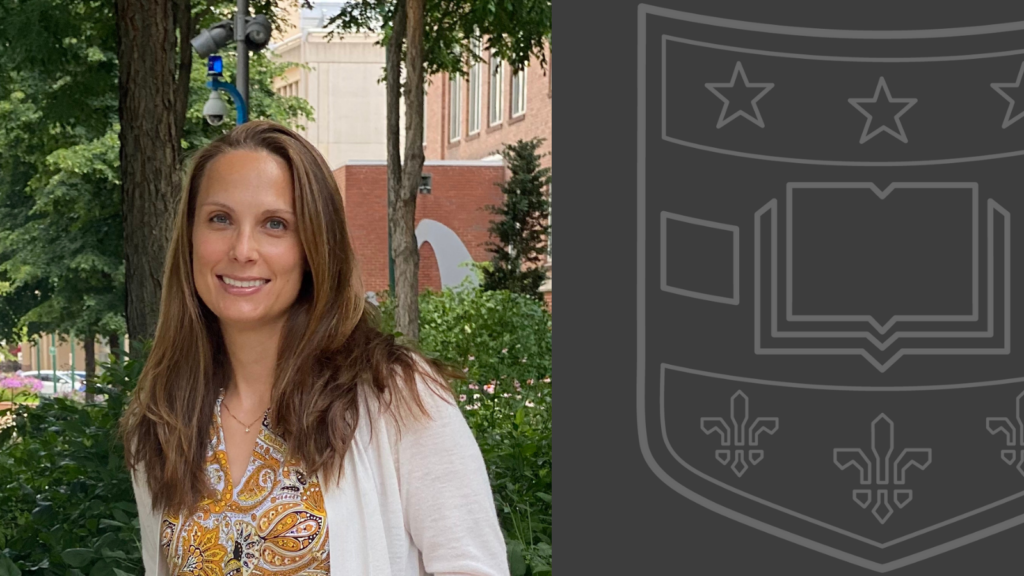
Erica Schmitt, MD, PhD, was born in Oshkosh, Wisconsin, and grew up near Milwaukee, Wisconsin. She thought one day she would be a teacher, an archaeologist or perhaps be like Jane Goodall, PhD, DBE, and study animals. She also frequented the Veteran’s hospital with her grandfather — a Korean War veteran who had chronic health problems including narcolepsy, cataplexy and >10 myocardial infarctions. It was around this time that her interest in medicine spurred, and in high school, she had a biology teacher, Mr. Ritz, whose excitement for science and nature inspired her to pursue science.

In college, she majored in biochemistry at the University of Wisconsin-Madison. There, when not memorizing cellular pathways, she ran the 400m hurdles for the women’s track team and enjoyed watching Badger football games. In college, she performed bench research in the Doebley lab, studying the genetics relevant to the domestication of maize and its wild ancestor teosinte, often going to the corn fields on hot summer days to collect samples and tend to the field. She was, also, able to participate in patient-oriented research in allergy/asthma. While home from college one weekend to watch her brother’s high school football game, she met her future husband, Tyler. A short nine months later they were engaged and have now been married for 15 years. She decided, a bit last minute, to take the MCAT and apply to medical school and, subsequently, started her medical degree at the Medical College of Wisconsin. It was there that she first learned about the medical scientist training program. While pursuing a summer research project, she decided to apply and was accepted into the MSTP after her first year of medical school. She completed her dissertation in the lab of Calvin Williams, MD, PhD, studying Treg cells. During medical school, she became intrigued by primary immune deficiency disorders and autoimmunity and wanted to continue immunology research. She came to Washington University for the Physician Scientist Training Program, starting her pediatric residency in 2015 followed by a rheumatology fellowship. She

joined the lab of Megan Cooper, MD, PhD, and, again, followed her interests in Treg cells into a new model of STAT3 gain-of-function syndrome, a monogenic immune dysregulation disorder. When they relocated to St. Louis, Tyler joined the baseball coaching staff at Washington University and, as an avid baseball wife and mother, Schmitt has spent a lot of hours watching and learning the game of baseball.

Since joining the faculty in 2021, Schmitt attends in both Rheumatology and Immunology outpatient clinics and inpatient services. Currently, she devotes most of her time to research, where she has a special interest in studying immunological tolerance and immune dysregulation disorders. When she isn’t working, she is busy spending time with her three energetic children, Brayden (11), Elianna (7) and Luke (3), in addition to chauffeuring them to their many activities. In her spare time, she enjoys baking, hiking and traveling to visit family in warmer destinations (Florida). There is, however, considerably less snow in St. Louis than Wisconsin (but probably MORE snow days!?). Perhaps she did harbor a persistent desire to be around wild animals, as her 120lb silver lab (Rookie) has now made an annual tradition of jumping out of the car window onto the highway while traveling the past two Thanksgivings. In Rookie’s spare time, he also enjoys eating all of the baked goods in the house, making it easier to for us all to cut back on the carbs.
